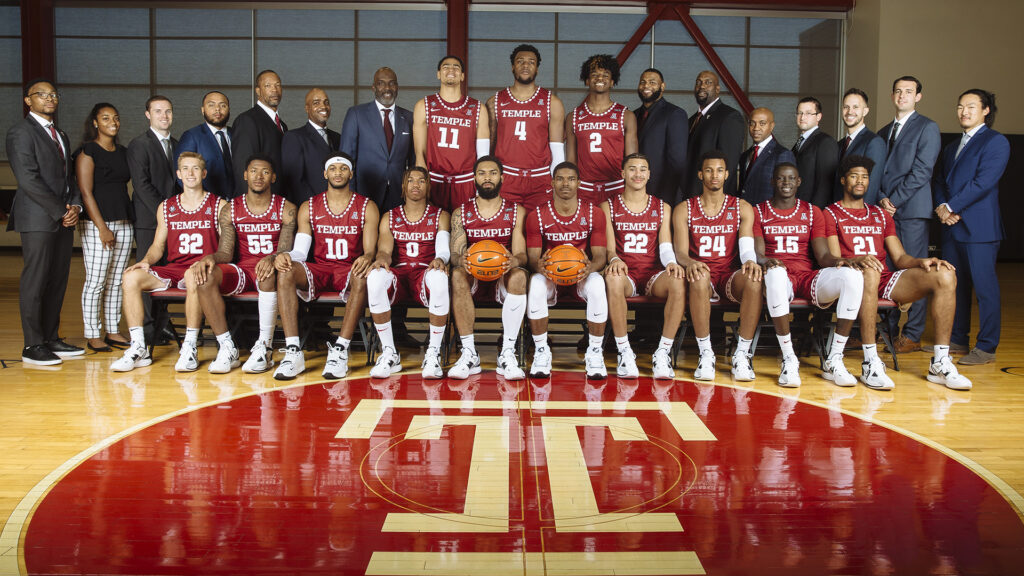Team History
The Temple Owls men’s basketball program has a storied history, dating back to 1895. Over the decades, they have established themselves as a force in college basketball, known for their tenacious defense and passionate fanbase. Temple’s rich tradition has seen some of the greatest names in basketball walk through its doors, contributing to an enduring legacy that continues to inspire new generations of players and fans.
The program’s longevity makes it a pillar of Philadelphia sports culture. Temple’s commitment to excellence on the court has resulted in periods of dominance as well as challenging rebuilds, always with an unwavering spirit that embodies the city in which they play.
Foundation and Early Years
Temple University’s foray into basketball began in 1895. Initially, the team played as an independent, facing local colleges and athletic clubs. The early years were marked by experimentation and the gradual establishment of a solid program. As the sport grew nationally, the Owls steadily rose in prominence.
During the 1920s and 1930s, Temple consistently played a competitive schedule. While national championships eluded them, the foundation was set for breakthroughs to come in subsequent decades.
Notable Early Achievements
The Temple Owls earned their first major taste of national recognition in the late 1930s when they won the inaugural National Invitation Tournament (NIT) championship in 1938. Led by legendary coach James Usilton, the Owls returned to the NIT in 1939, once again reaching the finals but ultimately falling short.
Despite missing out on back-to-back championships, this era solidified Temple’s potential on the national stage. The Owls’ early NIT success foreshadowed a sustained period of excellence to come in the decades that followed.
Periods of Change
The Temple Owls basketball program has experienced its fair share of change and transition over the years. Following World War II, a new era dawned under coach Harry Litwack, transforming the Owls into a perennial contender. This led into a golden age of Temple basketball, culminating in exciting NCAA Tournament runs and Final Four appearances.
Litwack’s retirement in 1973 brought a period of adjustment. While the program maintained its competitive spirit, the Owls faced new challenges as the college basketball landscape evolved. Various coaches have left their mark on the Temple program since those glory years, adapting to a changing sport while seeking to recapture the team’s past heights.
Championships and Achievements
The Temple Owls have accumulated an impressive collection of titles and accolades. They were retroactively awarded a national championship by the Helms Athletic Foundation and the Premo-Porretta Power Poll for the 1937-38 season. The Owls have secured five Atlantic 10 Conference regular-season championships and six Atlantic 10 Tournament championships.
The Owls are a fixture in NCAA Tournament history, having appeared in the tournament an impressive 32 times. Their most memorable NCAA Tournament performances include reaching the Final Four in 1956, 1958, 1988, 1991, 1993, 1999, and 2001. Adding to their rich history, they captured the NIT championship in 1938 and 1969.
Home Stadium Information
The Temple Owls play their home games in the Liacouras Center, located on the university’s main campus in Philadelphia, Pennsylvania. The Liacouras Center officially opened its doors in 1997 and has a seating capacity of 10,200, creating an electric atmosphere for Owls basketball games.
Known for its passionate fan base, the Liacouras Center provides a distinct home-court advantage. The arena is named after university president Peter J. Liacouras and is a modern venue hosting not only basketball but other university events and concerts as well.
-
*********** ***** ******* *** ***** ** ************ **** ********* *****dd.mm.yyyy 00:00 PM
-
****** *********** **** ** ***** ****** *** **** *** ******: ********* *** ******* *** ****'* ****dd.mm.yyyy 00:00 PM
-
*********-***** ********: **** 6 **** *** ***** *** * ********* **** 7dd.mm.yyyy 00:00 PM
-
**********-************ *******: ****** ****ć, ******* *******, *** * ********* ********** ********dd.mm.yyyy 00:00 PM
-
********* **** ********* ** *** ***: ********* *** ********* ** ****** ******** **. *** *** *****dd.mm.yyyy 00:00 PM
-
****************** ******* **********: *** ********' **** ****dd.mm.yyyy 00:00 PM







